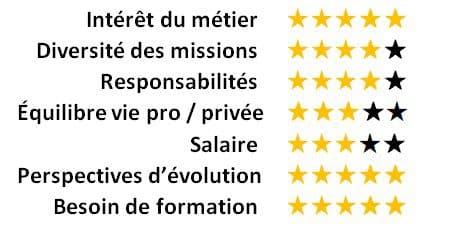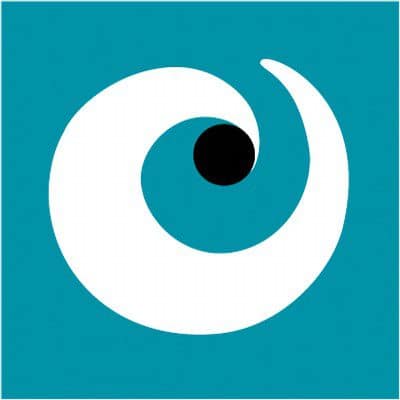Gone are the days of the IT project manager. Make way for the product owner. A highly sought-after profile in the corporate world, the product owner oversees the development of a digital product (website, software, application). As specialists in Agile methods, they take into account both the needs of end users and those of the company's IT resources. What are their tasks? What skills and training do they need to become one?

As the interface between the customer, the production teams (development, design) and the business teams (marketing, sales), the product owner has a management and communication profile. Their objective? To successfully deliver a high-quality digital product that meets customer expectations. Working methodically using the Agile Scrum method, they maintain a vision of the product and maximise its business value throughout the product life cycle. He or she prioritises and breaks down the creation process into small steps, while encouraging continuous improvement of the product.
What are the missions of the product owner?
The product owner (PO) participates in the development and evolution of a digital product (website, software, mobile application, in-house application, SaaS product, etc.).
He/she gathers the needs of the end user (internal or external) and passes them on to the technical teams. They draw up, distribute and update the product backlog, which enables them to develop a roadmap of product developments in line with the company's marketing strategy.
It is his job to act as the interface between the end user, the development teams and the business units (marketing, customer support, sales team, etc.). Their main working tool is the product backlog (PB), which they use to prioritise topics. Another essential task is to write the user stories, which list the user requirements for each feature.
The product owner plans the technical projects for each iteration (sprint) and participates in the design of the various solutions implemented. He or she is responsible for the functional validation of developments (acceptance testing) and organises user test sessions to ensure that the functionalities meet the initial requirements. At each iteration, they update the product backlog in line with user feedback and focus on maximising the business value of the product.
What studies should I do?
Product owners have a higher education qualification (bac +5) in IT (master's degree, engineering school specialising in IT, etc.) or business school with a digital focus (master's degree in digital marketing, web project management, etc.).
What skills do you need?
An expert in Agile methods, the PO must have a good knowledge of the business in which he or she operates. They must have the managerial (project management), interpersonal and technical skills needed to interact with developers.
► TECHNICAL SKILLS (expertise)
- Experience and expertise in Agile project management methods, particularly Scrum
- Use of collaborative project management and production tools (Asana, Jira, Slack, Trello, GitHub, etc.)
- Use of a prototyping tool (Balsamiq Mockups, Mockplus, Pidoco, etc.)
- Use of data analysis tools (Google Analytics, Segment, etc.)
- Recommended knowledge of front and back end computer languages (Java, PHP, JavaScript, HTML, etc.)
- Recommended experience in UX (user experience)/UI (user interface) design
► BEHAVIOURAL AND INTERPERSONAL SKILLS (soft skills)
- Rigour, organisation and methodology
- Ability to listen, analyse and summarise
- Reactivity
- Attentive to market trends
- Respect of deadlines
- Excellent communication skills, pedagogue
- Team spirit
- Good stress management
- Good command of English
What is a typical day like for a product owner?
The product owner lives at the pace of product development. When he arrives at the office, he reads his emails and, depending on the organisation, consults his collaborative messaging system (Slack, etc.). Then they open their project management tool and check the status of the sprint and comments on user stories. They find out about the latest performance indicators (KPIs) relating to their product. This could be Google Analytics if it's a website, the number of new downloads if it's a mobile app, or the ratings and new customer comments in the customer support backlog, etc.
Armed with all this data, he then takes part in the daily or scrum, a short daily meeting held by the development teams, during which everyone shares their work in progress.
The PO works on the upcoming sprint to refine the backlog. He interacts with marketing, customers, sales and support teams.
The second part of the day is devoted to project monitoring: managing backlog priorities, writing user stories and progress reports, preparing a PowerPoint presentation, etc.
The last part of the day consists of preparing the schedule for the next sprint.
How much does a product owner earn?
As in most professions, a product owner's salary depends on their business expertise, the number of years' experience they have, the size and location of the company and the importance of the project they are managing.
- 35-40 k€ annual gross (beginner0-2 years experience)
- 40-50 k€ annual gross (confirmed2-5 years experience)
- 50-70 k€ annual gross (senior5 years' experience or more)
What are its development prospects?
A product owner can move into jobs related to digital product management (software, mobile applications, websites, etc.). They can become Scrum masters and ensure that the Scrum methodology is properly implemented.
They may also move into the role of product manager, with a stronger marketing dimension, or chief product officer (CPO), who oversees the entire product strategy, managing the product teams (including several POs) in accordance with an associated roadmap and budget.
Can you speak product owner?
The words most often used by the product owner are :
Backlog (product backlog) Development plan: prioritised list of tasks to be carried out by the project team to improve a product and its various functionalities. It is the product owner's main tool.
Scrum (daily meeting, daily scrum, stand-up meeting) daily meeting lasting at least 15 minutes, held standing up, during which the development team reviews the progress of the current sprint.
Release plan upcoming sprint sequence
Release new version of the product delivered to end users.
Scrum Agile project management: methodological framework.
Scrum master Scrum: guarantees compliance with the Scrum methodology, and acts as the role the conductor between the development team and the product owner.
Sprint or iteration Release: this is a short period of time (one month maximum) during which the development team will design, build and test new product features.
Sprint planning Sprint planning: the first event of the sprint, the sprint planning presents the work to be carried out during the sprint and should lead to the definition of a sprint objective.
User story (US) or user story Description of the end-user requirements for a software, website or application functionality. A US must be delivered in one sprint.
Any advice for people interested in this profession?
The PO must not rely solely on his technical knowledge. The human aspect, empathy and benevolence enable them to understand the needs of consumers and the company's business lines, but also to maintain good relations with the various stakeholders. The aim is to achieve continuous improvement and maximise product value.
What are the attractions and constraints?

- Good prospects for development
- Varied tasks involving several teams

- The need for regular training in technologies and methods
- Numerous meetings
- Requires excellent time management
- Stressful job, as you have to meet the demands of many stakeholders
The product owner in a nutshell



